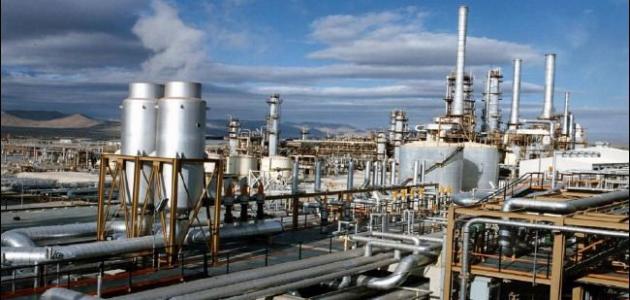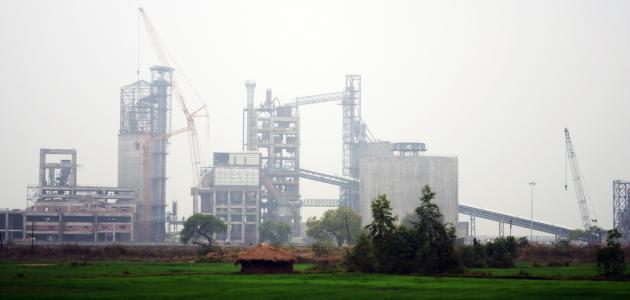Industry
The emergence of industry depended on the developments witnessed by civilizations and peoples, so societies were able to transform from pastoral to agricultural; Relying on livestock grazing and agriculture to developed and advanced industrial societies, it owns a group of institutions and facilities that convert raw materials scattered on the surface of the earth or existing within it into various industries and productions.
Industry is a group of operations that convert raw materials into final materials, provide benefits to consumers, or export them to other countries, and it is defined as the art that a person performs in order to become a profession for him. The industry is classified into traditional industries that include a group of crafts and handicrafts, and modern industries that rely on factories and factories. This is done by using raw materials and converting them into other materials.
The importance of industry
Industry is characterized by its positive role affecting the regional and national economic environment, as it contributes to the development of the standard of living of individuals in its various fields, and the following is a set of points that explain its importance:
- The industry provides commodity requirements; Through primary crafts, such as: mining, petrification, grazing, agriculture, and marine and wild fishing, and this contributes to enhancing the economic activity of these sectors.
- Industry provides job opportunities and professions for workers who suffer from unemployment, and in order to increase the efficiency of employment, rehabilitation and training centers are opened; It specializes in teaching workers how to deal with modern equipment and machines that are used continuously in production.
- Industry supports the GDP; Because of the contribution of its operations in adding benefit and value to the materials used in the production process; Which leads to an increase in the wealth of peoples; Therefore, industrialized countries are characterized by excellent living standards.
- Industry contributes to the production of final goods; This leads to the development of several economic sectors, such as: services, energy, transportation, and agriculture. The industry is also interested in producing consumer goods capable of raising the living standards of the population.
- Industry affects places and regions; As it leads to the emergence of major changes in the effective participation of each region within the economic movements; By selecting regions for specific industrial fields, it possesses a set of local ingredients.
- The progress of industry helps to enhance economic and political independence, and supports the achievement of self-sufficiency.
Types of industry
Industry is divided into several types, namely:
Read also:How to make pottery- Primitive industry: It is the industry that relies on the strength of human and animal hands, and this type of industry is often applied inside homes. Therefore, it is also known as the domestic industry, and examples of it include spinning, the food industry, and others. The primitive industry is one of the global industries, but its importance declined with the development of civilizations, leading to its absence in contemporary societies.
- simple industry: It is the industry that contributes to reducing the weight or size of raw materials, or helps to transport or preserve them, and this industry supports the preparation of products used in other types of industries, and contributes to shaping them according to their final design acceptable for the use of individual consumers, and the simple industry does not use any kind of Other types of raw materials, as it is distinguished from the industries that appear within the production sites of raw materials and raw materials, and do not need to be transported unless it is an industry specialized in specific types of minerals.
- Community industry: It is a special kind of simple industry, also known as the service industry. Because societies need it in order to achieve satisfaction for its consumption, and the importance of this industry depends on civilization, the more the level of civilization develops, the greater the society's needs for industries, and examples of them: means of transportation, trade, trains, car repair, electricity, phones, and bakeries.
- Composite industry: It is the industry specialized in cities, and this industry is considered complex according to its production methods and means of distribution, and it is characterized by the need to use complex and complex machines, and to rely on more than one raw and raw material in the production process, and this industry does not aim at transportation or preservation, but rather appears in special uses, and often It is manufactured for the use of the final consumer and is not an intermediary for another industry. It is also not manufactured for domestic use only, but can be marketed for external use. Examples of composite industries include: watchmaking, cars, and chemicals.
Industry components
The industry needs many ingredients, namely:
Read also:How is medicine made?- Raw materials: They are raw materials, the location of the industrial facility must be close to them.
- Work's strength: It is the industry's need to employ a labor able to work.
- energy resources: It is the force required to support the operation of machinery in factory production.
- market: It is the site that is used to sell industrial production, but the market is not used in technological industries; Because of its low weight and low transportation costs.
- Transportation: It is the network that facilitates the movement of products.
- Location : It is the need for industries to have areas that help to reach them.
- capital: It is the money that is invested in starting businesses and commercial projects.
- government policy: It is the policy that supports industrial development in some countries.
The relationship between society and industry
The relationship between society and industry is summarized based on the nature and quality of society. It is possible to divide societies into three forms:
- Developed societies: Industry in it is not considered a main goal, but rather a means that helps provide the needs of individuals, and promote political independence supported by realistic economic independence, based on the production of large quantities at low prices; Through technology that develops the means and methods of production.
- third world societies: They are the societies belonging to the capitalist countries; Where it has a dependent economic system that relies on importing machinery and materials, with a low average income and national product, and weakness in industry; In terms of skills, type, and techniques used in them.
- Arab societies: The Arab industry is considered weak and has not achieved economic integration, and it varies between Arab countries. Because of the diversity of the circumstances of each country, and the different nature of economic developments in it.









